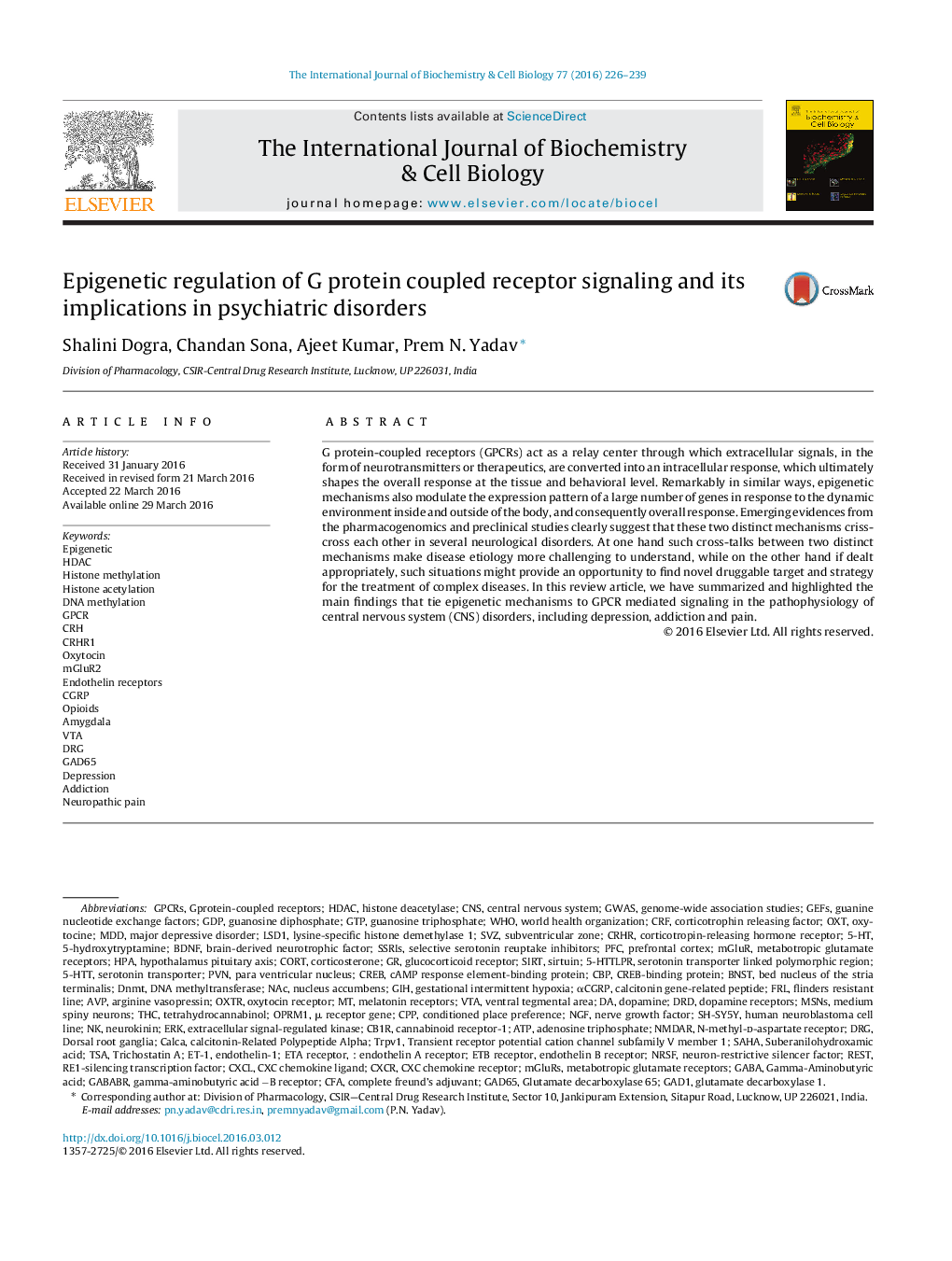| Article ID | Journal | Published Year | Pages | File Type |
|---|---|---|---|---|
| 1983261 | The International Journal of Biochemistry & Cell Biology | 2016 | 14 Pages |
G protein-coupled receptors (GPCRs) act as a relay center through which extracellular signals, in the form of neurotransmitters or therapeutics, are converted into an intracellular response, which ultimately shapes the overall response at the tissue and behavioral level. Remarkably in similar ways, epigenetic mechanisms also modulate the expression pattern of a large number of genes in response to the dynamic environment inside and outside of the body, and consequently overall response. Emerging evidences from the pharmacogenomics and preclinical studies clearly suggest that these two distinct mechanisms criss-cross each other in several neurological disorders. At one hand such cross-talks between two distinct mechanisms make disease etiology more challenging to understand, while on the other hand if dealt appropriately, such situations might provide an opportunity to find novel druggable target and strategy for the treatment of complex diseases. In this review article, we have summarized and highlighted the main findings that tie epigenetic mechanisms to GPCR mediated signaling in the pathophysiology of central nervous system (CNS) disorders, including depression, addiction and pain.
